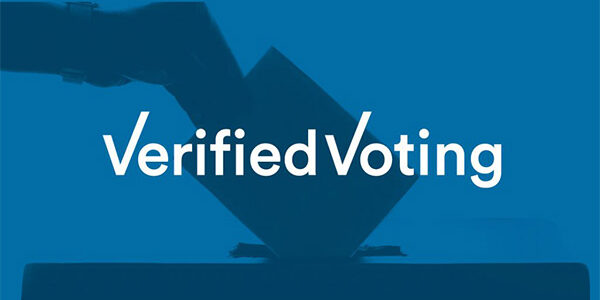September 27, 2021
Elections and Ethics Committee
Michigan House of Representatives
124 North Capitol Avenue
Lansing, Ml 48933
via email
RE: Verified Voting Urges Rejection of Senate Bill 311 Dear Committee Members,
On behalf of Verified Voting, I write in opposition to Senate Bill 311, which allows the electronic return of voted ballots by active-duty members of the uniformed services. Verified Voting is a nonpartisan nonprofit organization whose mission is to strengthen democracy for all voters by promoting the responsible use of technology in elections. Since our founding in 2004 by computer scientists, we have acted on the belief that the integrity and strength of our democracy rely on citizens’ trust that each vote is counted as cast. With this in mind we oppose allowing voted ballots to be returned electronically through insecure means, a dangerous practice that SB 311 regrettably allows.
Multiple cybersecurity experts have concluded that internet voting is insecure. The National Academies of Sciences, Engineering and Medicine released a report in 2018 stating that the technology to return marked ballots securely and anonymously over the internet does not exist1. Additionally, in the lead up to the 2020 General Election, the Department of Homeland Security, the Election Assistance Commission, the Federal Bureau of Investigation, and the National Institute of Standards and Technology told states and election officials that electronic ballot return “creates significant security risks to the confidentiality of ballot and voter data (e.g., voter privacy and ballot secrecy), integrity of the voted ballot, and availability of the system. We view electronic ballot return as high risk. Securing the return of voted ballots via the internet while ensuring ballot integrity and maintaining voter privacy is difficult, if not impossible, at this time” [emphasis added]2. Nothing has changed; no new internet technology has been created to mitigate this risk.
To verify the identity of eligible military voters, the bill requires the use of a Department of Defense verified electronic signature, as defined in the tie-barred bill S.B. 8. However, use of this type of electronic signature cannot protect against some of the other wider vulnerabilities associated with internet voting, including malware on a voter’s device, server penetration, and denial of service (DDOS) attacks – all of which could potentially compromise or disrupt voting by service members.
We know that there are vendors of online and mobile election systems that make bold statements about how safe and secure their systems are. Unfortunately, these vendors do not reliably assess the security risks of the products they sell. Their public relations, marketing, and lobbying efforts consistently downplay the inherent risks of internet voting. Multiple studies have been performed on these types of systems and the conclusion is always the same: the risks are significant and no good solution yet exists to mitigate those risks3 .
We understand the profound challenges you face to assure every voter’s ability to vote and recognize that active-duty members of the uniformed services may face particular barriers to having their vote count. Verified Voting strongly supports interventions to assure voters’ equal opportunity and access to cast their ballot – securely and verifiably. The Uniformed and Overseas Citizens Absentee Voting Act (UOCAVA) requires a 45-day lead time for military and overseas ballots. Because of this, almost every overseas voter can receive, mark, and return a paper ballot in a timely manner. Many states also accept military ballots that are postmarked before Election Day even if they arrive after Election Day4 . This is a commonsense measure that Michigan could consider adopting.
At a time when election security and public confidence are under attack, electronic return of voted ballots presents a slippery slope to vulnerable and insecure elections. We therefore urge that S.B. 311 be rejected.
Respectfully submitted,
Mark Lindeman, Ph.D.
Director
- National Academies of Science, Engineering, and Medicine, 2018. “Securing the Vote: Protecting American Democracy.” Washington, DC: The National Academies Press. https://doi.org/10.17226/25120 [↩]
- DHS Memo https://www.politico.com/f/?id=00000172-9406-dd0c-ab73-fe6e10070001 [↩]
- See https://verifiedvoting.org/internet-voting%20resources/#currentsystems [↩]
- Count Every Hero, 2020. “Military Voting in All 50 States.” https://counteveryhero.org/research-report/ [↩]
